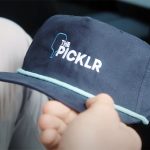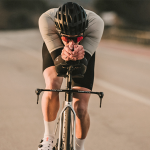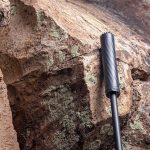Puma reported revenues declined 2.3 percent in the first quarter as Eurozone retail spending continued to weaken and sales in Asia were affected by an unusually long winter. Sales in the Americas improved 1.8 percent. Earnings declined 32.0 percent in the period and the company slightly lowered its outlook for the year.
2013 First Quarter Facts
- Consolidated sales fall by 2.3 percent currency adjusted to €782 million($1.02 bn)
- EPS reduced from €4.92 to €3.36
- Transformation and Cost Reduction Program on track
- New Chief Executive Officer Björn Gulden appointed
- Puma partner Borussia Dortmund reaches Champions League final
“In the current challenging business climate, especially in Europe and in Asia, we are continuing to implement our Transformation and Cost Reduction Program aimed at improving efficiencies and our cost base,” said CFO Michael Laemmermann. “This will increase Puma’s profitability in the long-term. Confirming our increased focus on Performance, Puma’s visibility and credibility as a premium football brand have been further enhanced with Borussia Dortmund’s progress to the Champions League final.”
Sales Performance by Region
Business climate in Europe remains challenging
Sportlifestyle company Puma recorded a decline in first quarter sales as Eurozone retail spending continued to weaken and sales in Asia were affected by an unusually long winter. Sales fell by 2.3 percent in currency adjusted terms to €782 million ($1.02 bn) when compared to the first quarter of 2012.
Puma’s sales in the Americas improved by 1.8 percent currency adjusted to €260 million ($338 mm). There were strong performances in Mexico and Brazil, where Teamsport was bolstered by Rio de Janeiro soccer club Botafogo, and Argentina, where Lifestyle collections are resonating well. Our Cobra Puma Golf division continues to deliver outstanding results, which is also reflected in rising sales in North America.
Sales in the EMEA region were impacted in particular by the softening in retail spending, exacerbated be the unusually long winter, and fell by 4.8 percent currency adjusted to €348 million ($452.4 mm).
Strong performances in Russia, Turkey and the D-A-CH region, where classic footwear models such as the Suede and new Motorsport apparel lines resonated well, could not completely offset weak performances in Italy and France. Steadfastly high levels of unemployment in the southern regions of the Eurozone added to the difficult retail environment.
In the Asia/Pacific region, sales declined by 2.9 percent currency adjusted to €173 million ($224.9 mm). India, supported by excellent sales in Running and Teamsports, and Australia delivered positive performances which could not quite offset the less satisfactory numbers from Japan, where there was an unusually harsh winter, and China, where Fitness & Training products in particular did not perform as expected.
Satisfying retail performance
Puma’s Retail sales increased by 13.9 percent currency adjusted to €135 million ($175.5 mm), representing a 17.3 percent share of total sales. This rise in sales was supported by excellent results from our e-commerce business, particularly in North America.
Sales Performance by Segment
Lack of Sporting Events impacts Footwear Sales; Mobium on the Rise
In the first quarter of 2013, Accessories performed exceptionally well during the first three months of 2013, rising by 11.9 percent currency adjusted to €152 million ($197.6 mm). This outstanding performance was once again led by Cobra Puma Golf and our North American joint venture for socks and bodywear.
Apparel sales declined modestly in the first quarter by 1.1 percent currency adjusted to €256 million ($332.8 mm). Although Fundamentals were lower, Cobra Puma Golf and Running continued to perform well. In Teamsport, the spotlight remains firmly on our most successful team, Borussia Dortmund, whose journey to this season’s Champions League final at the end of May has captured the imagination of football fans around the world underlining Puma’s position as a premium football brand.
Puma has also recently successfully introduced its ISPO award winning Puma ACTV and RCVR performance apparel. By fusing compression technology with inbuilt athletic taping, ACTV and RCVR apparel increase the body’s performance and improve its recovery times, taking this category to the next level.
Footwear sales declined by 7.8 percent currency adjusted to €373 million ($484.9 mm). The decline was caused in part by the Teamsport category, which did not perform as well in a non-event year, and Training & Fitness was impacted by the shrinking demand for toning products. In Lifestyle Puma’s new range of Suede and Archive Lite Models were very well received, with our Future Suede Lite and TX-3 shoes resonating extremely well with consumers in the Asia/Pacific region.
Following the launch of “The Nature of Performance” brand platform to revitalize our Performance categories, Puma Running was invigorated by our new Adaptive Running shoe, the Puma Mobium Elite. The Mobium Elite is delivering encouraging sell-through in many markets, including the United States and Asia/Pacific region.
Transformation Program being implemented according to plan
The implementation of Puma’s Transformation Program continued during the first quarter. The set up of Puma’s new Business Unit, supported by our Performance and Lifestyle pillars, is now complete and the evolution to a market and consumer focused organization continues. Each of Puma’s six Business Units will be managed by one fully accountable Business Unit General Manager. Each team is wholly situated at one location to be able to react faster to consumer trends and optimize each team’s efforts. Puma’s European consolidation of 23 countries into 7 areas is also on track, with our D-A-CH and Iberia areas now established. In retail, 45 underperforming stores were closed by the end of the first quarter.
Puma will continue to execute on all of the measures set out under the Transformation and Cost Reduction Program in 2012 in order to benefit the Company in both the mid- and long-term.
Margin, Expenses and Profitability
Gross Profit Margin softens to 49.1 percent
Puma’s gross profit margin fell from 51.2 percent to 49.1 percent year on year. Pressure on the gross profit margin in the first quarter came in the most part from two sources: Substantial currency headwinds due to the negative hedging position in the first quarter of 2013 compared to the same period last year, and also continued inventory management with a particular focus on Footwear, combined with higher input costs. As a consequence, Footwear margins dropped from 49.5 percent to 46.1 percent and Apparel retreated from 53.5 percent to 51.5 percent, while Accessories improved from 51.9 percent to 52.6 percent.
OPEX decrease as a result of the Transformation and Cost Reduction Program
The broad approach undertaken to reduce costs by Puma under both programs enabled the Company to reduce operating expenditure in nearly all areas, resulting in a decrease in OPEX of 3.9 percent to €310 million ($403.0 mm).
Operating Result (EBIT) impacted by drop in gross profit margin
Despite the cost savings achieved by the measures undertaken under the Cost Reduction Program, operating profit declined in the first three months of 2013 from €102 million to €79 million ($102.7 mm) due to the decline in sales and gross profit margin. As a consequence, the EBIT ratio decreased from 12.4 percent last year to 10.1 percent this year.
Financial Result declines
The financial result declined from €1.1 million to €-4.0 million ($5.3 mm) in the first quarter, due mainly to negative currency conversion impacts.
Earnings before Taxes (EBT) retreat
Puma’s EBT for the first quarter declined to €75 million ($97.5 mm) in 2013 compared to €103 million in 2012, representing 9.6 percent of sales compared to 12.6 percent for the same period last year. Consequently, tax expenses abated from €28 million to €22 million ($28.6 mm), representing a tax rate of 29.3 percent versus 27.1 percent for the first quarter of 2012.
Net Earnings Soften
Consolidated net earnings dropped by 32.0 percent from €74 million to €50 million (65.0 mm). Earnings per share therefore also fell back from €4.92 in 2012 to €3.36 in the first quarter of 2013.
Net Assets and Financial Position
Equity continues to strengthen
Puma’s equity base continued to strengthen, with the equity ratio moving up slightly from 66.4 percent to 66.7 percent compared to the first quarter of 2012. Shareholder’s equity is now equivalent to €1,676 million ($2.18 bn), up from €1,652 million.
Working Capital increases
Puma’s overall Working Capital increased by 7.0 percent to €775 million ($1.0 bn) due to the reduction of working capital related liabilities. A continued strong emphasis on inventory management resulted in almost flat stock levels at €592 million ($796.6 mm). Trade receivables declined by 4.3 percent to €594 million ($772.2 mm), due to the lower revenues in the quarter.
Cashflow / Capex
The Free Cashflow improved from €-200 million last year to €-154 million ($200.2 mm) this year due to lower payments for acquisitions in spite of the decline in earnings before tax.
Capex declined from €14 million to €9 million ($11.7 mm), which was mainly invested in the opening and refitting of selected retail stores as well as office and IT equipment.
Cash Position improved
Puma’s net cash position improved slightly from €203 million to €207 million ($269.1 mm) at the end of the first quarter.
General Matters
New Chief Executive Officer appointed
Puma SE’s Administrative Board appointed Björn Gulden as Puma’s new Chief Executive Officer (CEO), effective 1 July 2013. Björn brings to Puma an extensive international experience of nearly 20 years in the sporting goods and footwear industry, where he has held a variety of senior management positions.
Outlook for the Financial Year 2013
In view of Puma’s first quarter results and of continuing economic uncertainty in certain key markets, Management now expects a low- to mid-single-digit decline in currency-adjusted full-year net sales. This forecast represents a slight downward revision compared to the guidance provided with the 2012 full-year results.
Management reiterates its expectations for continued pressure on the gross profit margin. Under these circumstances, Puma is also unlikely to meet its original guidance of low- to mid-single-digit growth in EBIT before special items. However, Puma’s Management confirms that it expects net earnings to increase compared to the 2012 level.















